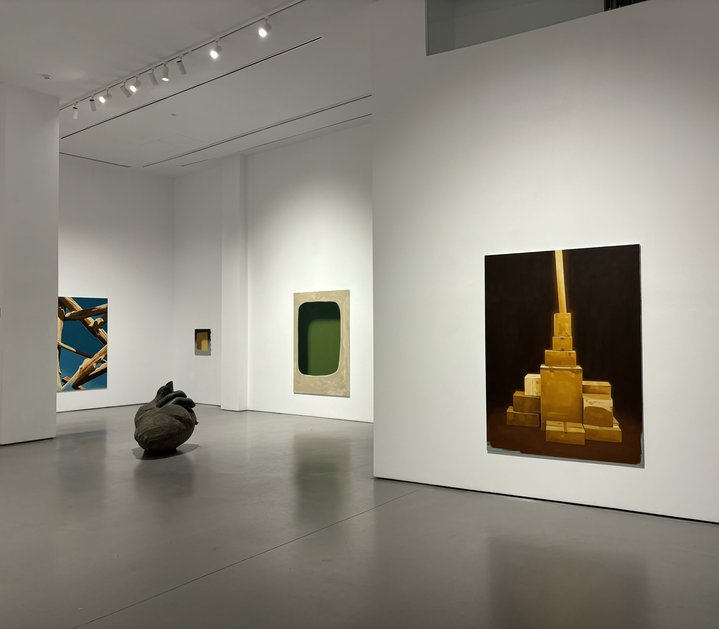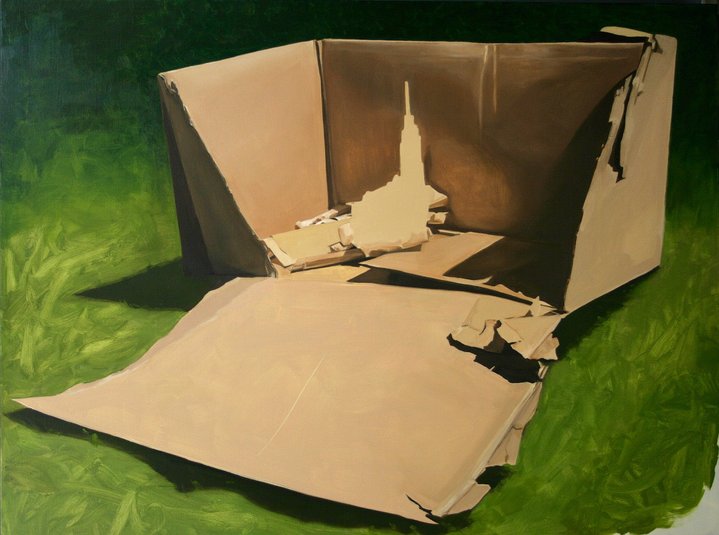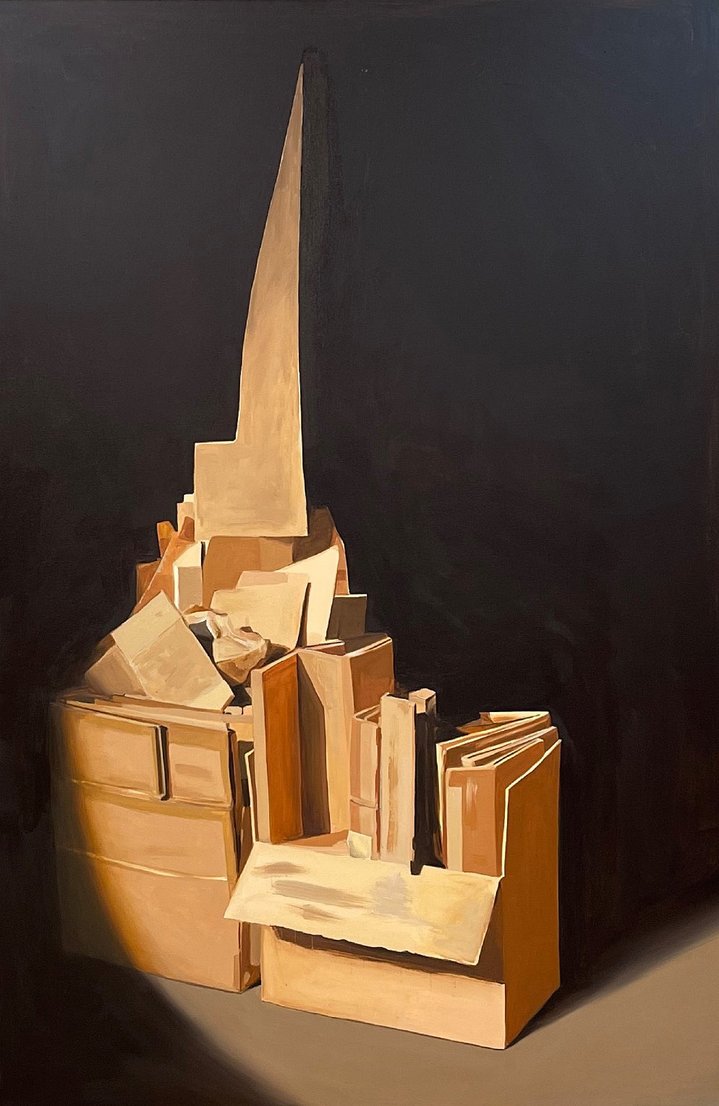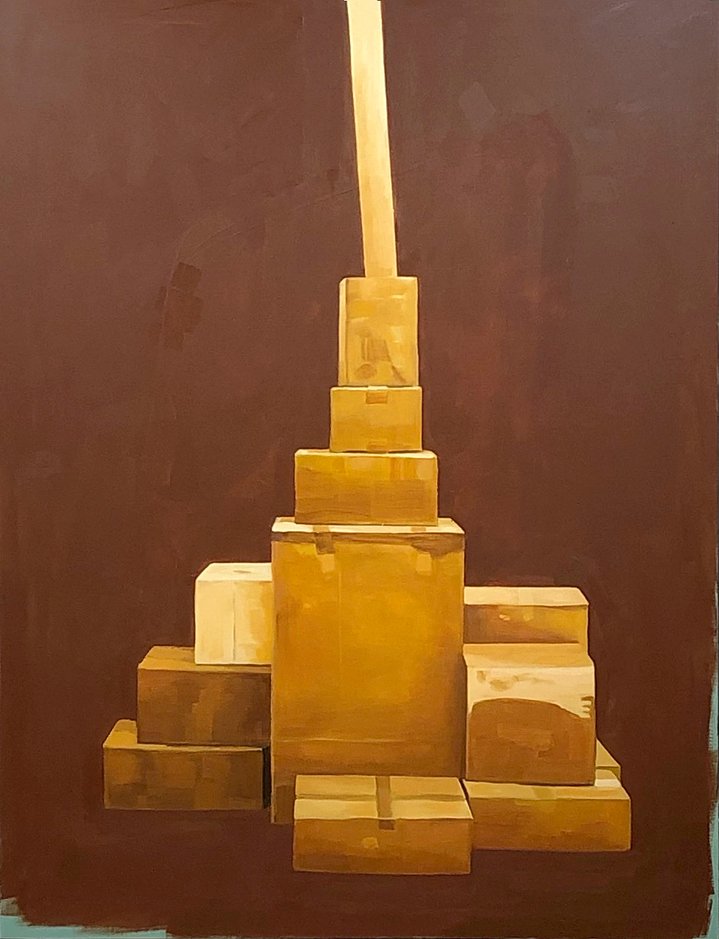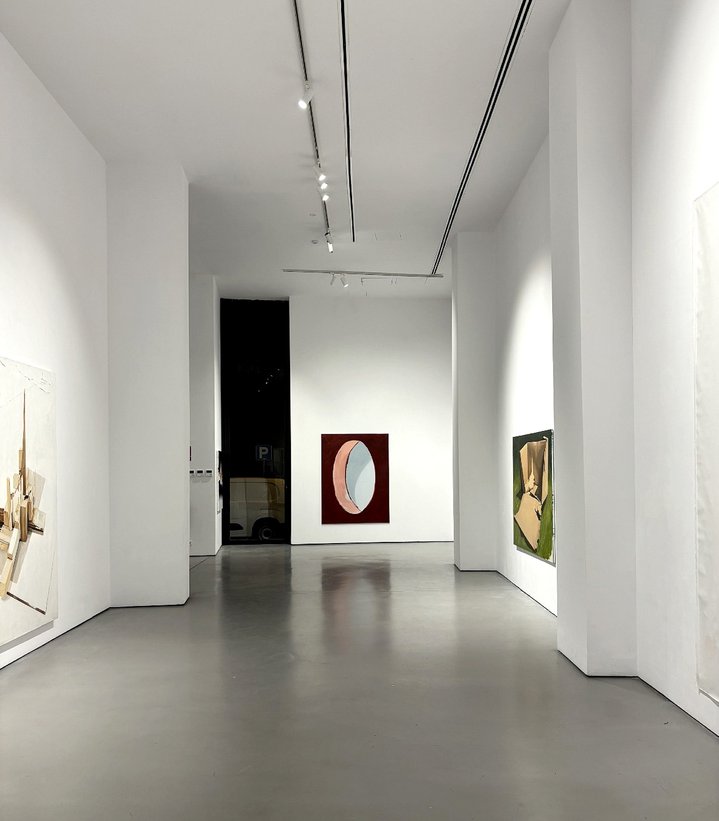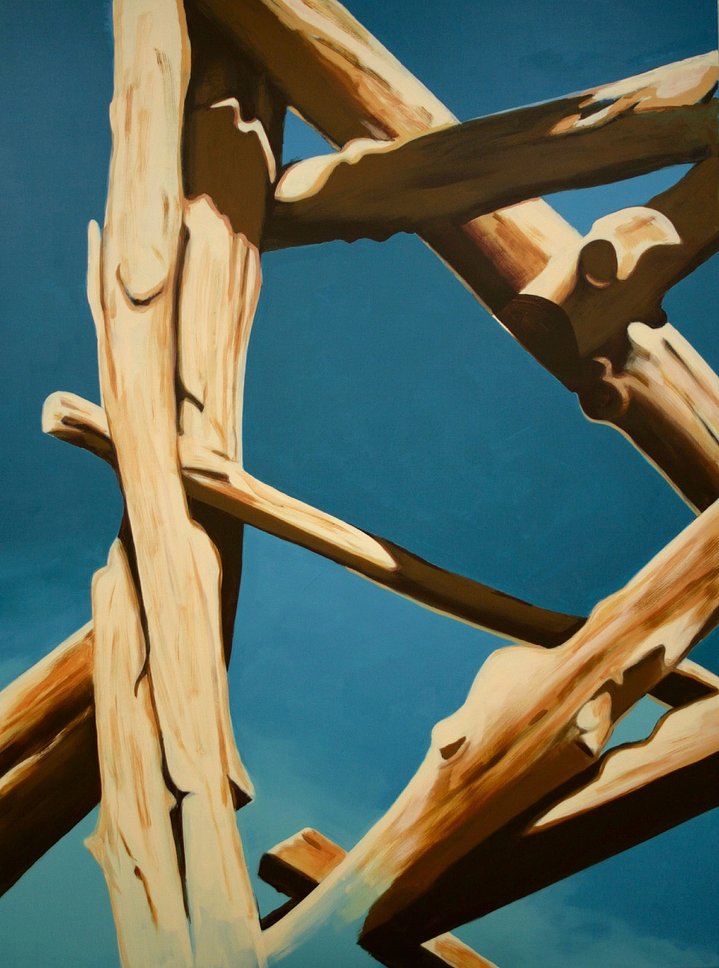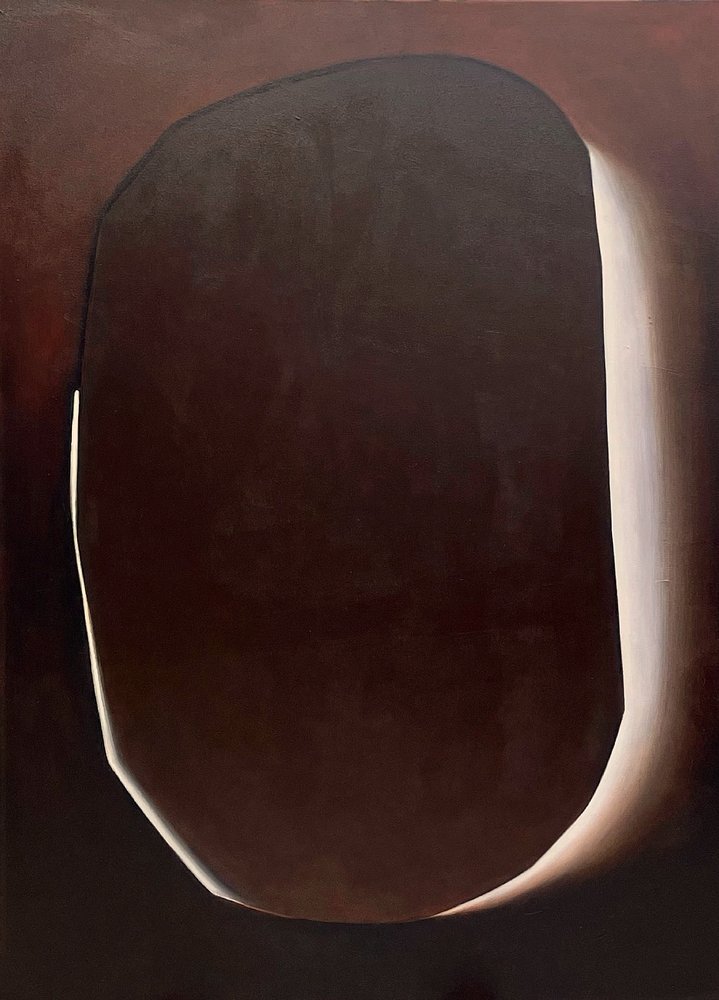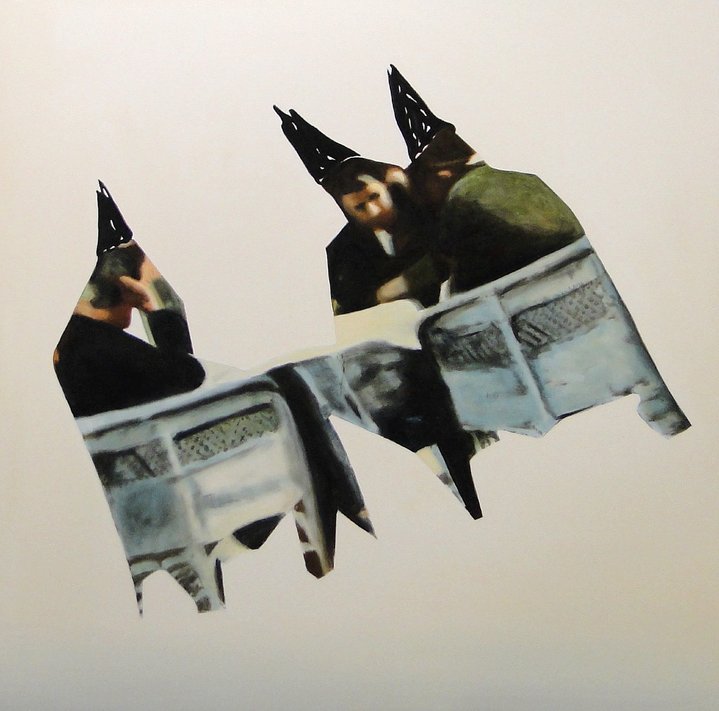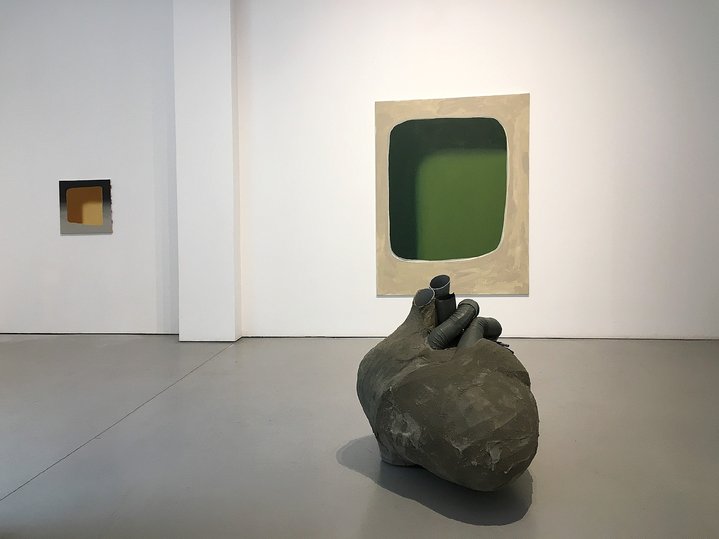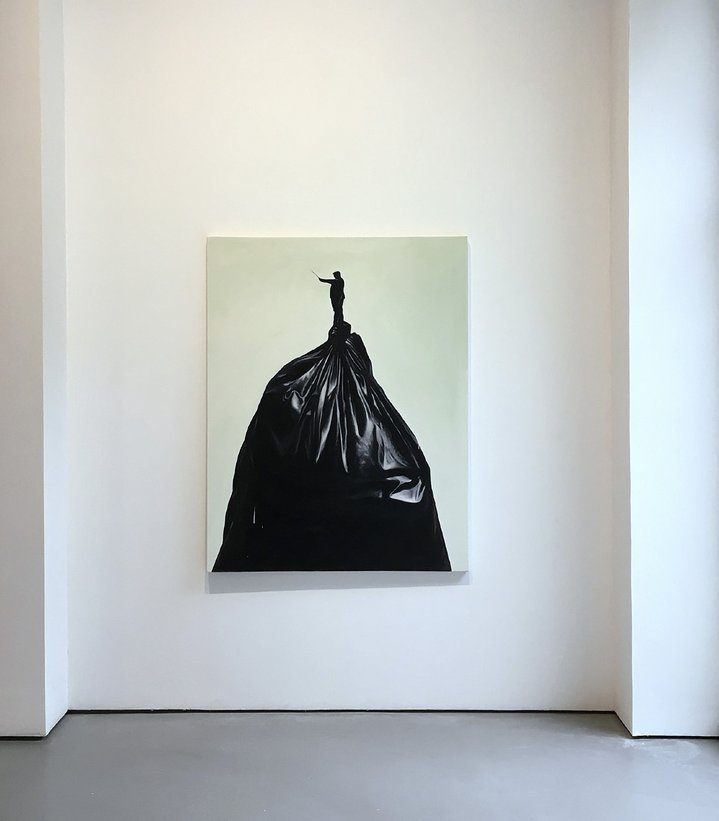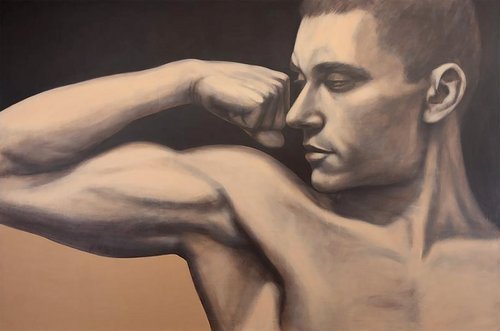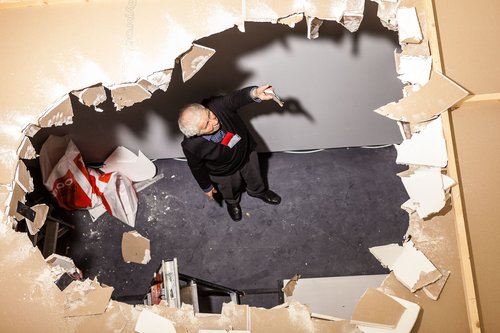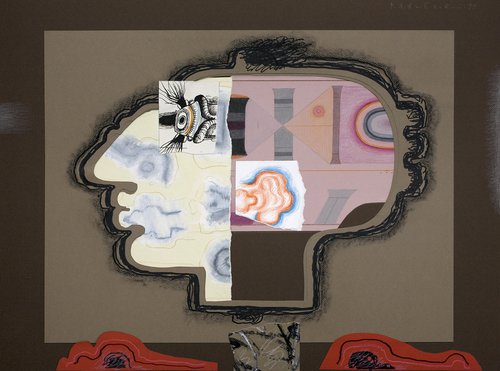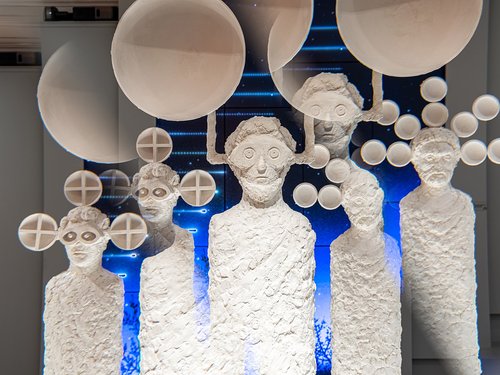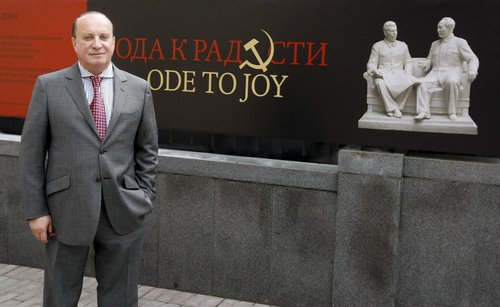Roiter's Escape Through a Hole in the Ceiling
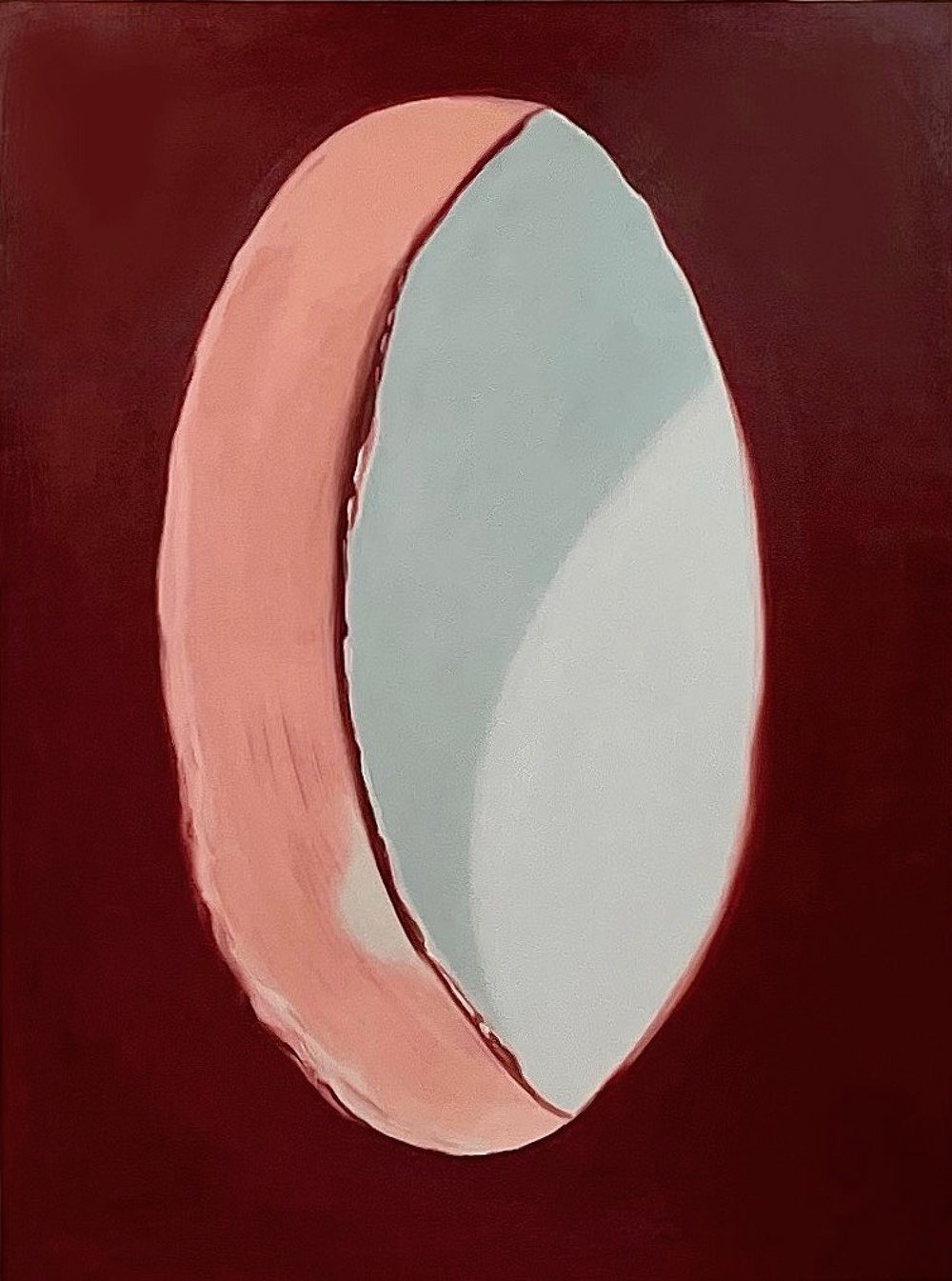
Andrei Roiter. Opening #4, 2023. Courtesy of Galeria Alvaro Alcazar
'Open' at Galeria Alvaro Alcazar in Madrid is a solo exhibition of the work of Andrei Roiter, which brings together pieces created over the past decade showing how his soviet legacy can still instruct international audiences today.
Born and raised in Moscow, artist Andrei Roiter (b.1960) moved abroad during perestroika. Today, three decades on, for many Russian collectors he is an artist with a foreign sounding name who is no longer Russian. Yet Roiter was one of the founder members of the Kindergarten artist squat, heirs of the Moscow conceptualists, a new generation of artists born in the sixties who took the torch. And today much of Roiter´s art is about post-imperial realities, although not only soviet ones, and he still carries the baggage of his own origins, literally. The old Soviet leather suitcase he took with him on a three-day train journey from Moscow to Brussels in 1988 still sits in his studio as a daily reminder of where he came from.
I discover it is not just Russian collectors who brush off his origins. Talking about the period when he first left, I ask him ´Did you miss Russia?´. He replies ´No, I did not miss Russia´. Now, three decades have passed and he has lived outside Russia all that time. Although his parents still live there, he has not visited since before the pandemic, and he says he has no great feelings of nostalgia towards what he calls his ´fatherland´. He feels that he was born in the wrong place, today he is comfortable as a European, he likes living in Amsterdam. It sounds to me like he really made an exit, no looking back.
And yet, all the main references in his work today still place him in the midst of his generation of Russian artists, like Yuri Albert (b.1959) and Vadim Zakharov (b.1959) for their constellation of references and influences, themes of failed utopias and post-imperialism, the Russian avant-garde, his use of colour and form which echo the dark palettes of late Soviet dissident artists, or Russian constructivism, not to mention politics and irony. His paintings of everyday objects could be added as a footnote in their own right in any anthology of late 20th century Russian Arte Povera.
Perhaps it is useful to change the narrative to remind ourselves that Russian culture is like every other culture within Europe, it has its place in the international art scene, not in a ghetto, and it continues to be influential. Contemporary living artists such as Roiter but also their predecessors, like Ilya Kabakov (1933-2023) whose string of influences have entered our European cultural life and can be felt further afield too.
As an artist nationality was something Roiter consciously demystified early on once he left Russia. He talks of the flood of interest in underground artists in Moscow during perestroika, how numerous galleries in the West signed up artists on this wave, only to drop them within a decade once the honeymoon period with Russia was over. It taught him to rely on his own instincts when a gallerist or collector liked his work for what it was, without putting him into a box. Ever since he settled in Amsterdam in 1990, he has lived only by his art, and it has always given him the lifestyle he wants enabling him to travel.
To date, his projects in Russia have not borne much fruit. A big solo retrospective in Moscow at MMOMA in 2013 resulted in no sales, although this was a time when the domestic art market there was in decline. Now he has some unprecedented interest from Russian based art collectors in part because the market for art of the 1980s is being rediscovered there. It is hard to find, much was made of poor materials, was lost, or sold to foreigners buying into the fashion for underground artists, amateur art lovers rather than collectors, and the work has fallen into obscurity. Tellingly, the material on Roiter´s own website starts from the early 1990s after he left Russia, even though the years he spent working in the Kindergarten and learning first hand from the likes of Ilya Kabakov and Vladimir Yankilevsky (1938-2018), formed him as an artist. These pre-perestroika works today are gaining in value as classics of the era. About the absence of any materials relating to the 1980s on his website, the artist says ´It was not a conscious choice. It is down to all the bad materials, the lack of slides, there is no documentation, there are no photos of the Kindergarten´.
As much as about the War in Ukraine, his Madrid show is about current politics. His current wife is American, and he lives part of the year in New York, which gives him a unique perspective. Trump features a lot in the work he has done in recent years. Among the paintings on view in Madrid, ´Trash Conductor´ is the darkest, dominated by a bloated, black, plastic rubbish bag on top of which stands a small image of Trump in black silhouette waving a conductor´s baton. ´It is not a portrait of an individual, it is more about what got him there in the first place´. This is the nadir of the show, but Roiter always offers some hope. His ´holes´, paintings with round holes in the centre, draw me into a hazy, light space, affecting my mood and cheering me up. He cites Fontana as an influence although in Roiter´s work the paint surface is a set for playing with three dimensional illusions, here the holes in the canvas are not cut with a knife, they are painted. Illusion beckons you into a space full of imagination and potential.
You cannot write about Andrei Roiter without mentioning travel, even as an epilogue it feels as though I have missed the main point. Roiter is an eternal nomad, the archetypal traveller, coining the phrase ´artist/tourist´ to describe himself, something which further undermines the importance of nationhood as nomads do not belong anywhere. Although it was Leningrad underground artist and self-confessed nomad Timur Novikov (1958-2002), who once said that ´futurism became tourism´, a concept Roiter loved and it stuck in his mind. And he is the child from the Kindergarten, so his real journey began when in his own words ´he escaped through a hole in the ceiling´ (a reference to Ilya Kabakov´s famous installation ´The Man who Flew into Space from His Apartment´) and not when he stepped onto the train at the Leningradsky Station in Moscow, suitcase in hand.
Andrei Roiter. OPEN
Galeria Alvaro Alcazar
Madrid, Spain
16 November 2023 – 15 January 2024






